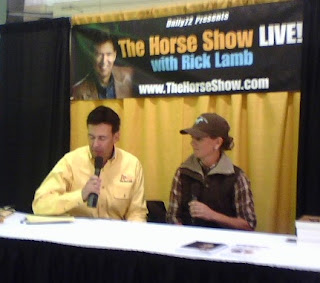
Alternative Horsemanship™ with Samantha Harvey the Remote Horse Coach teaches horse behavior, horse training, and coaches horseback riders of all experience levels. Offering horsemanship clinics worldwide, distance horse coaching instruction, horse video learning catalog, equine consultations, equine re-education and rehabilitation, colt starting, and lessons. Follow her #alternativehorsemanship on all social media platforms.
Pages
- What is Alternative Horsemanship™?
- About Equestrienne and Horse Coach Samantha Harvey
- Full Immersion Alternative Horsemanship Clinics
- Remote Horse Coach- Personalized Distance Learning
- Client Testimonials
- Video Courses & Classes
- Horse Behavior Course
- Horse Shopping Help Online Course
- Livestream Horse Learning
- Horse Webinars
- YouTube
- TikTok
- Newsletter
- Horse Humor Journal
Pushing versus supporting the horse
15 minute free, LIVE video posts covering a variety of equine related topics.
Click HERE
Diffusing Unwanted Horse Movement
This particular video is a fantastic example of why most folks don't have accurate or quality steering, and shows so clearly when the brain and body are disconnected, what happens in the physical movement.
Evolving journey of Horsemanship
A personal challenge was learning how early I could recognize within ME if there was a horse that was close to the imaginary line of becoming curious and interested in life, versus him mentally bailing and continuing to be defensive towards the human, and to not try to "make" him commit to a change.
Haltering the Horse - Setting the Standard
Haltering the Horse - Setting the Standard
We've talked about how the "ride" begins when you think about going for the ride, and learning to "leave" the reality of daily stresses and demands behind as you show up to be with your horse.
I've mentioned the conversation starts with how your horse approaches you to be caught, whether in a stall or pasture, which is a great time to assess his mental focus and "tells" you what you might need to address before you even catch him.
Today I want to talk about the act of actual haltering. Use this "simple" act as a way to practice being clear and intentional in your haltering which will spill over into all that you ask of your horse.
Haltering is a wonderful time to notice if you are task fixated or quality focused. What does that mean?
If you have a horse that is willing to come over to be caught but dives into the halter, looks away from you as you attempt to slip his nose into the halter, pushes into your personal space as you are doing up the strap, and you allow the horse to do these behaviors, on multiple occasions, you are task fixated.
This means, that your goal is as long as the horse doesn't "leave" (with his feet,) you're willing to accept however he chooses to present himself and interact with you, as long as you can eventually get the halter on.
So if this is the starting point for your "conversation" with the horse, how do you think the horse will respond to you and how much will he address you respectfully if this is how he is approaching initial interaction with you?
What will the leading him, tacking him, mounting him, and ride feel like?
Horses are searching for and offering constant feedback, as that is how they communicate and "survive" in the herd. If they are trying something, such as being disrespectful with their head, avoiding you with their thought, and you do nothing to address this, if your goal is solely to get the halter on, you have set the "tone" or standard for everything else that you will ask of them.
You have unintentionally told them they can ignore you, physically push into you, and dictate how future interaction between the two of you will be.
So by doing this, you are creating "more work" to get your horse to listen and it is the beginning of the "begging" the horse or as many folks do, "working around" the horse.
Seat Bones and Centered-ness in the Saddle-

Critique vs Positive Alternative communication with the horse
One of the themes at a recent clinic in Oahu was discussing a positive alternative vs. a critique in our communication with the horse.
Most riders focus on what they don't want and attempt to "block," drive or reprimand the horse in a moment of unwanted behavior.
Seeing the Details- Learning Horse Behavior
LIVE Q & A Alternative Horsemanship Videos
Learning to read Horse Behavior
Refining Ground Work with the Horse
Refining Ground Work with the Horse
Whenever I show up to work with a horse I go through a mental checklist assessing things such as:
- Where is the horse’s mind today?
- How is the horse looking/feeling in his postures, breathing, and movement?
- What was the feeling or energy he offered when greeting me in his pasture or stall?
- Does he seem mentally available as I ask to halter, lead, and stop at the gate?







